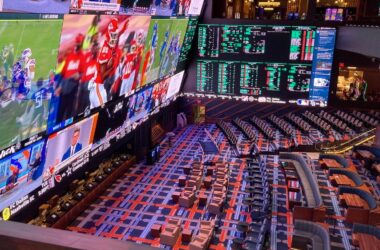A betting exchange is a marketplace where punters can bet against each other and set their own odds. This is in contrast to a traditional sportsbook, where the bookmaker sets the odds and takes on the risk. Betting exchanges make their money by charging a commission on winning bets, typically between 2-5%.
How Do Betting Exchanges Work?
To use a betting exchange, you must first create an account and deposit money into it. Once you have money in your account, you can start placing bets. When you place a bet, you are effectively becoming the bookmaker. This means that you are setting the odds for someone else to take. For example, if you think that Team A has a 60% chance of winning their next match, you might offer odds of 2.0 (i.e. 1/1 or evens) that they will win.
If someone takes your bet, then they become the punter and you become the bookmaker. If Team A wins the match, then you will pay out the winnings to the person who took your bet. Conversely, if Team A loses or the match ends in a draw, then you will keep the stakes that were placed on the bet.
How betting exchanges are different from bookmakers
If you’re interested in placing bets on sports or other events, you’ve probably heard of both betting exchanges and bookmakers. Both offer similar services, but there are some key differences between the two that you should be aware of before placing your bets.
The first thing to understand is how each type of entity makes money. Bookmakers make money by taking a cut of each bet that is placed through them. So, if you bet $100 on a team to win, the bookmaker may take $5 as their fee. This fee is called the “vig” or “juice.” Exchange bettors, on the other hand, don’t pay any fees. Instead, they earn money by charging a commission on winning bets. So, if you win a $100 bet placed through an exchange, you may have to pay a 5% commission, which would be $5.
Another important difference is that bookmakers always set the odds for the bets that are placed through them. This means that there is always a built-in advantage for the bookmaker (since they will always win some percentage of the total bets placed). With exchanges, however, the odds are set by the bettors themselves. This means that there is no built-in advantage for the exchange; instead, they simply charge a commission on winning bets.
The most important thing to remember when using an exchange is that you are essentially gambling against other people, not against the house (as is the case with sportsbooks). This means that there is no guarantee that you will be able to find someone to take your bet.
Finally, it’s worth noting that bookmakers generally offer a much wider range of bets than exchanges do. This is because bookmakers only need to find one person who is willing to take the other side of your bet; with an exchange, however, there needs to be someone else looking to place a bet with opposite odds in order for your trade to go through.

















